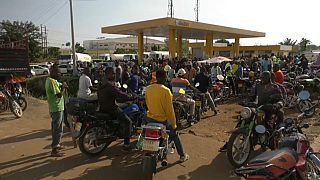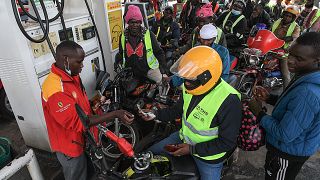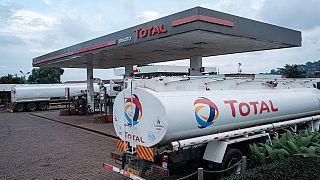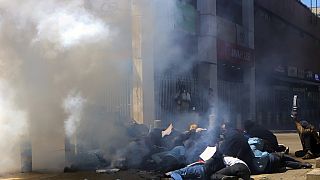Kenya
**The CEO in East Africa of fuel supplier Rubis was expelled from Kenya after days of fuel shortage. On Thursday, the Energy Cabinet Secretary pointed the finger at companies “diverting cargo earmarked for local use for export”. Rubis assured its efforts were directed to supplying the Kenyan market.
**
Kenyan motorists endured yet another day of major fuel shortages with strict rationing at petrol stations. If the government blamed hoarding and panic buying for hours-long queues, it pointed the finger at other players, on Thursday, namely oil marketers.
"Some players have additionally been diverting cargo earmarked for local use for export into the region to further enhance abnormal profit, really (… ), Monica Juma, Kenya Cabinet Secretary Energy and Petroleum said. This government will not tolerate any entity or person that is causing distress either by creating an artificial problem or stress".
The statement came a day after the general manager in East Africa of French fuel supplier Rubis was expelled from the country. So far, Rubis Energy Kenya denied increasing its export sales to the detriment of the Kenyan market and said its efforts were "directed to supply the market".
The government compared the situation "to deliberate effort to sabotage this economy", which she says, "constitutes a capital crime" in Kenya's statute books.
Oil companies, government row
The crunch began last week in Kenya's west following a row between oil marketing companies and the government over subsidy payments. The government pays oil providers to subsidise costs at the pump for motorists, but these companies said they were waiting on four months of outstanding payments.
The Energy and Petroleum Regulatory Authority (EPRA) said the government was working to settle all arrears owed to dealers. State depots were in possession of more than 69 million litres of petrol and 94 million litres of diesel as of Saturday, the Kenya Pipeline Company said. Kenya consumes nearly 400 million litres of petrol and diesel every month, according to government data.
To restore the situation, Monica Juma invited "any entity not ready, not able, not willing to work within the framework of the laws of Kenya [...] to vacate this market promptly."
Under an agreement with the government, retailers capped the price for petrol this month at 135 Kenyan shillings ($1.17, 1 euro) per litre. Blackmarket operators, however, have reportedly been selling at 160 shillings as the shortage bites.
There are fears the fuel crunch could see public service providers jack up the cost of fares and add to the surge in commodity prices.













Go to video
Kenya set to surpass Ethiopia as East Africa’s largest economy in 2025 – IMF
Go to video
Eliud Kipchoge returns to the London Marathon
Go to video
Kenya: Ant smuggling suspects set to be sentenced on May 7
01:16
Africa mourns Pope Francis, a voice for peace and justice
Go to video
Kenyan runners win both male and female races at Boston Marathon 2025
Go to video
Smart Justice: Kenya’s legal system embraces AI in a rapid digital shift